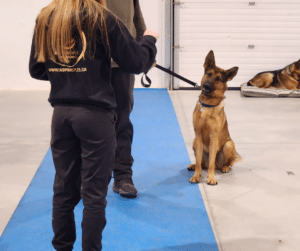Choosing the right dog as a lifelong companion is an exciting but complex decision, especially for a first-time owner. This comprehensive guide aims to provide all the essential information needed to make an informed choice, ensuring that your new pet is well-suited to your lifestyle and that their introduction into your home is as seamless as possible.
Assessing Your Lifestyle and Compatibility

- Activity Level: Understanding your own activity level is crucial. Are you someone who enjoys daily runs, or do you prefer a more sedentary lifestyle? Active breeds such as Australian Shepherds or Siberian Huskies require significant daily exercise to remain healthy and happy. On the other hand, breeds like the French Bulldog or Cavalier King Charles Spaniel have lower exercise needs and are content with shorter walks.
- Space Considerations: The size of your living environment directly impacts your suitable choice of dog. Smaller spaces like apartments are better suited for smaller breeds such as Terriers or Dachshunds, which do not require as much room to move around. Larger breeds, including Saint Bernards or Great Danes, are better suited to homes with ample indoor space and a secure backyard to accommodate their size and energy.
- Work Schedule: Your work schedule should also play a part in your decision. Dogs that are left alone for long periods may develop anxiety or exhibit destructive behaviour. Breeds known for their independence, like the Chow Chow or the Whippet, are more suited to owners with demanding work schedules. Conversely, dogs like Border Collies or Vizslas, which require more interaction and mental stimulation, are better for those who can spend significant time at home.
Detailed Care Requirements
- Grooming Needs:

Some breeds require daily grooming to maintain their coat’s health and manage shedding. For example, Poodles, regardless of their size, need regular professional grooming to keep their curly coats in good condition. In contrast, breeds like the Boxer or Chihuahua require minimal grooming, making them good choices for those who may not have time for frequent brushings. - Temperament: The temperament of a dog breed can greatly affect its compatibility with your household. Labrador Retrievers are known for their friendly and outgoing nature, making them ideal for families with children. In contrast, Greyhounds, while generally calm and gentle, are more reserved and may prefer a quieter household. It is important to match the dog’s temperament with your household’s environment.
- Social Needs: Some dogs are highly social and thrive on interaction with other dogs and people, while others are more solitary. Consider how much time and effort you are willing to dedicate to socialising your dog. Breeds like the Shetland Sheepdog are incredibly social and often require more frequent interaction with other dogs to stay happy.
Health and Longevity
- Genetic Health Concerns:

Researching the common health issues associated with different breeds is essential. For instance, Bulldogs are prone to respiratory problems due to their brachycephalic nature, while German Shepherds can suffer from hip dysplasia. Understanding these risks will help you prepare for potential future medical care and consider whether you can commit to managing chronic health issues. These issues could prevent you from doing some activities with certain breeds.
- Lifespan: Different breeds have different life expectancies, which can affect your long-term commitment. Smaller breeds typically live longer than larger breeds. A Chihuahua, for example, can live up to 15 years or more, whereas a Great Dane’s lifespan might be around 7-10 years.
Research and Preparation
- Utilising Resources: Extensive research is invaluable. Engage with breed-specific books and websites, attend dog shows, and speak with breeders and veterinary professionals to gain a deeper understanding of each breed’s specific needs and characteristics. Professional dog trainers such as K9 Principles will be available to answer any questions you may have about common behavioural issues they continue to see in certain breeds and can also use their years of knowledge to recommend breeds based on your lifestyle.
- Visiting Breeders and Shelters: Meeting dogs in person is crucial. Visit reputable breeders who can provide a clear history of their puppies and their breeding practices. Similarly, visiting shelters allows you to meet dogs who are often in desperate need of a home and can give you a sense of their temperament and behaviour.
Ethical Considerations
- Choosing Breeders: Select breeders who demonstrate ethical breeding practices. Ethical breeders will welcome your visit, show transparency about their breeding process, and show genuine concern for the welfare of their dogs. Ethical breeders will replace one of their puppies should genetic health concerns develop.
- Rescue Options: Adopting from a rescue organisation can be a rewarding experience. Many rescue dogs are looking for second chances, and adoption can save a life while enriching yours. These dogs may come with some pre existing behavioural issues that will need some attention but with consistent training, the majority of those concerns can be overcome and they can live a happy and fulfilling life with you.
Integration and Training
- Bringing Your Dog Home: Prepare your home before bringing a new dog into it. Ensure that your space is safe and welcoming, with a designated area for your dog to sleep and relax. Have a plan on how you properly introduce your new dog to any existing pets in the home to ensure they can live a harmonious life together.
- Training and Socialisation:

Early training and socialisation are key to a well-behaved pet. Enrol in dog training classes or seeking the help of a professional dog trainer with private lessons at home and expose your dog to various environments, sounds, and people to ensure they develop into a well-rounded adult.
Final Considerations
- Time and Financial Commitment: Owning a dog is a long-term emotional and financial commitment. Consider whether you are ready to invest in their health, well-being, and happiness over the years. Most breeds require daily exercise and mental engagement.
- Patience and Adjustment: Allow yourself and your dog time to adjust to each other. Building a bond may take time, but it is incredibly rewarding.
By thoroughly understanding your needs and the needs of your potential new dog, you can ensure a harmonious match that brings joy and companionship to both. This thoughtful approach to choosing a dog will help you embark on this wonderful journey with confidence, ensuring a fulfilling and joyful addition to your family.
- Name: K9 Principles
- Address: Haldimand County, Greater Hamilton Area, Burlington and Most of Norfolk County
- Phone: 289 880-3382
- Email: k9principlesinc@gmail.com
- Website: www.k9principles.ca
FAQs
-
Consider your lifestyle, living space, and activity level. Choose a breed whose energy levels and size are compatible with your own circumstances. Research different breeds, consult breed-specific literature, and speak with experienced owners and professionals to understand each breed’s needs and characteristics.



